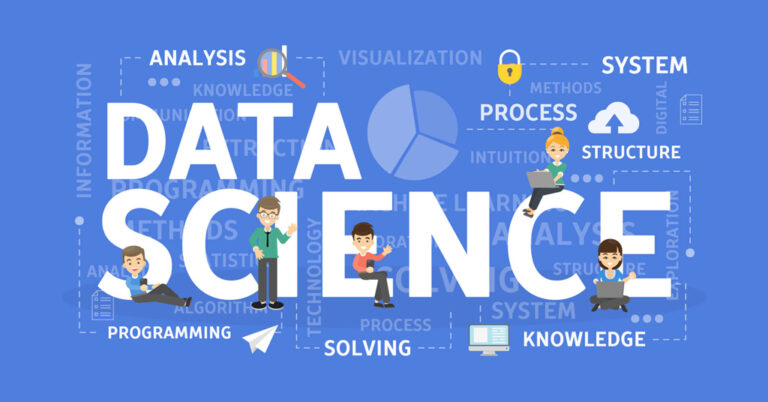“Data scientists in the evolving field of data science are always ready to tackle challenges, deliver unbeatable solutions, grow with the demands of technology, and add value to your business. A data scientist needs an aptitude for mathematics and a creative, problem-solving mindset. Data scientists have the ability to work with large unstructured data sets. A data scientist takes raw data, analyzes it, and applies analytical tools and techniques to transform it into a final result that any organization can understand. To extract such valuable insights from raw data, data scientists need a combination of knowledge and other skills. Skills in statistics, algorithms, programming and analysis.
Data analysis process
- Phase 1: Data preparation: Raw data is acquired or retrieved and extracted.
- Phase 2: Data Persistence: Extracted data is stored and staged.
- Phase 3: Model Development: A data model is developed for testing.
- Phase 4: Analysis: The model is analyzed and explored using experimental data to obtain desired results.
- Phase 5: Visualize: Visually present the model’s predictions to clearly understand and communicate the desired goals to the organization.
- Phase 6: Apply to the Problem: Through the application, the end user or organization helps in understanding the usage of prediction in the business.
Main goals of data scientists:
- Understand the best data model for better analysis
- Development and implementation of statistical learning models based on research questions
- Collaborate with other disciplines and disciplines such as artificial intelligence and machine learning to find better solutions
- To connect and communicate the results of our analysis with authorities or decision makers in your organization
Above all, data scientists must stay on top of the latest technologies to handle and manage organizational challenges.
Skills to become a data scientist
Data scientists need the following skills to advance their careers:
- Programming language: Understanding of basic programming languages such as Hadoop, MATLAB, Python, and SQL.
- Analytical Capabilities: Ability to collect and extract valuable insights from data and analyze the results of developed models to provide broad solutions to business problems.
- Mathematics and Statistics: In-depth knowledge of database systems, data mining, data modeling and visualization, statistical techniques.
- Communication and presentation skills: Excellent written and verbal communication necessary to express and present findings or solutions to stakeholders.
- Teamwork spirit: In order to identify problems, develop products, and deliver products that customers want, understanding with all stakeholders is essential.
Open source data science tools to learn
- Data mining and transformation tools: These tools are used to recognize and identify patterns in large data sets. They are also used to collect, extract, store and analyze data and information. Examples include Weka Tool, Scrapy, and Pandas.
- Data analytics and big data tools: These tools are used to analyze the collected and processed data to further train models and improve predictions. Examples include KNIME, or Konstanz, Hadoop, Spark, Neo4J.
- Model deployment tools: These tools are used to develop machine learning-based probabilistic or logical models. Examples include TensorFlow.js, MLFlow, etc.
- Data visualization tools: These tools are used to create the interactive visual interfaces that users want. Examples include Orange, D3.js or Data Driven Documents (D3), Ggplot2.
- Development environment or IDE tools: These tools resemble programming platforms that allow users to write code, test code, and find errors easily. Examples include Jupyter notebooks, Zeppelin notebooks, and R Studio.
data science applications
There are many applications based on data science concepts. One of the main applications is healthcare using medical image analysis to detect tumors and arterial stenosis, advanced treatments with genetics and genomics, creating virtual aids and customer support for users or patients, and medicines. development, etc. Other uses include speech recognition tools. Siri, Google Voice, Cortana, website recommendations, games and virtual reality, advanced image recognition, fraud and risk detection, and more.
The future of data science
The field of data science is helping organizations identify market value, create better decision makers, and effectively serve their customers.The hiring rate of data scientists with focused skills is , is very high in the e-commerce, financial and retail industries. The transportation and telecommunications industries are also targeting customers with exciting products and services. Data science plays a key role in the sales and operational decisions of oil and gas companies. The Bureau of Labor Statistics predicts that the data scientist job will grow three times faster than all other jobs.



